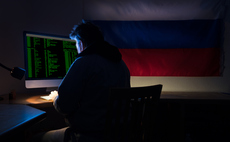Final vote to adopt the resolution in the UN General Assembly will be held next month
A UN committee on Monday passed a Russian-led resolution on a global cyber-crime treaty, despite reservations that it could be used to justify shutting down civil society in repressive countries. ...
To continue reading this article...
Join Computing
- Unlimited access to real-time news, analysis and opinion from the technology industry
- Receive important and breaking news in our daily newsletter
- Be the first to hear about our events and awards programmes
- Join live member only interviews with IT leaders at the ‘IT Lounge’; your chance to ask your burning tech questions and have them answered
- Access to the Computing Delta hub providing market intelligence and research
- Receive our members-only newsletter with exclusive opinion pieces from senior IT Leaders





















